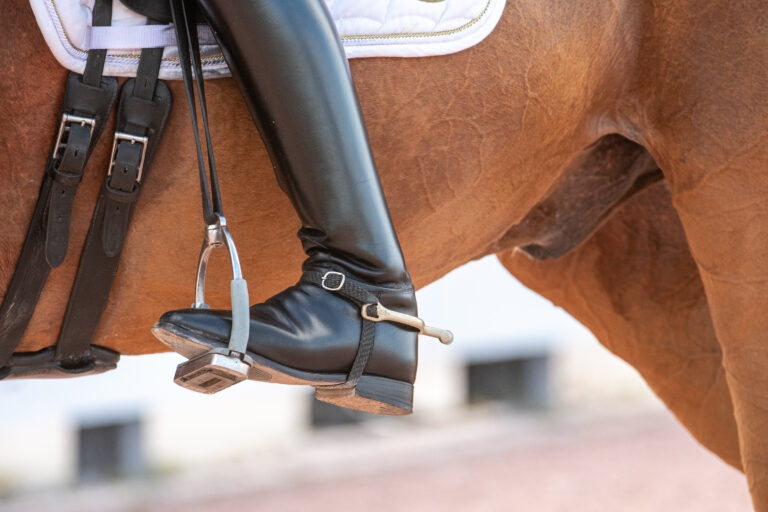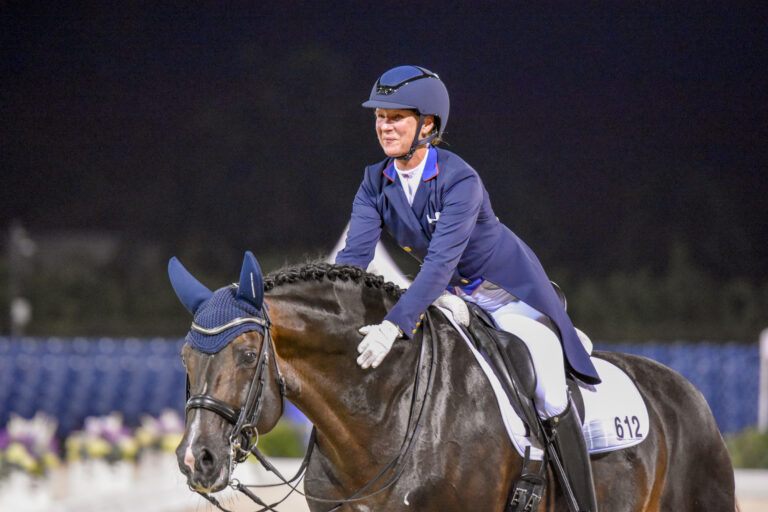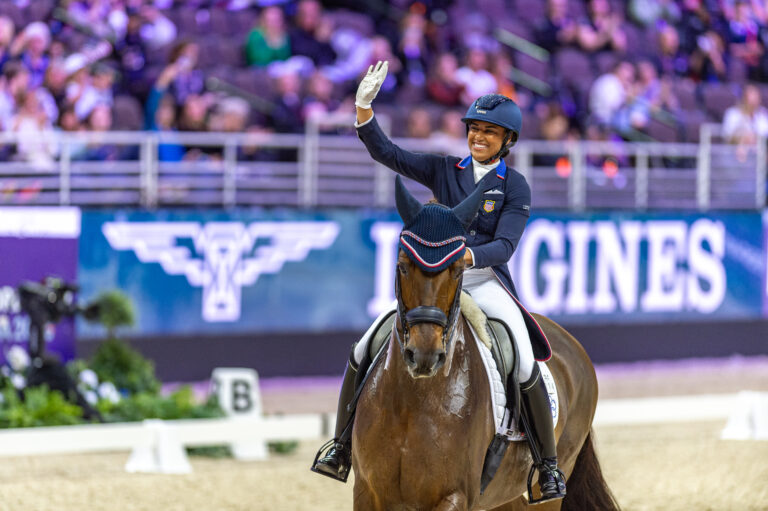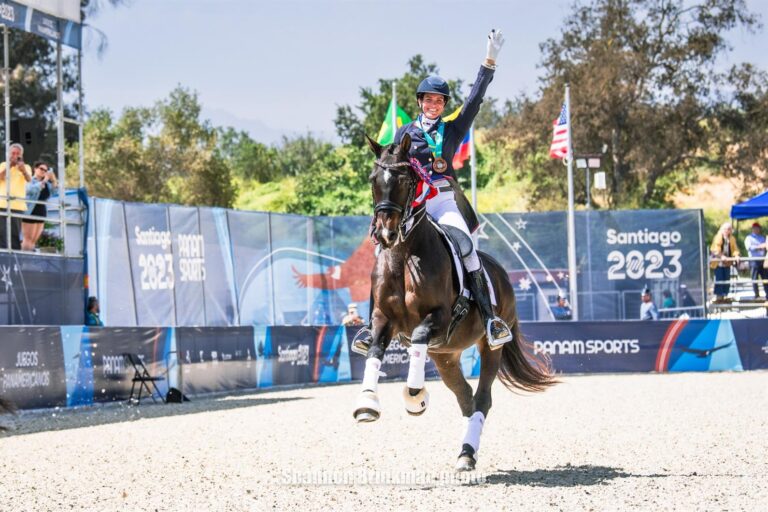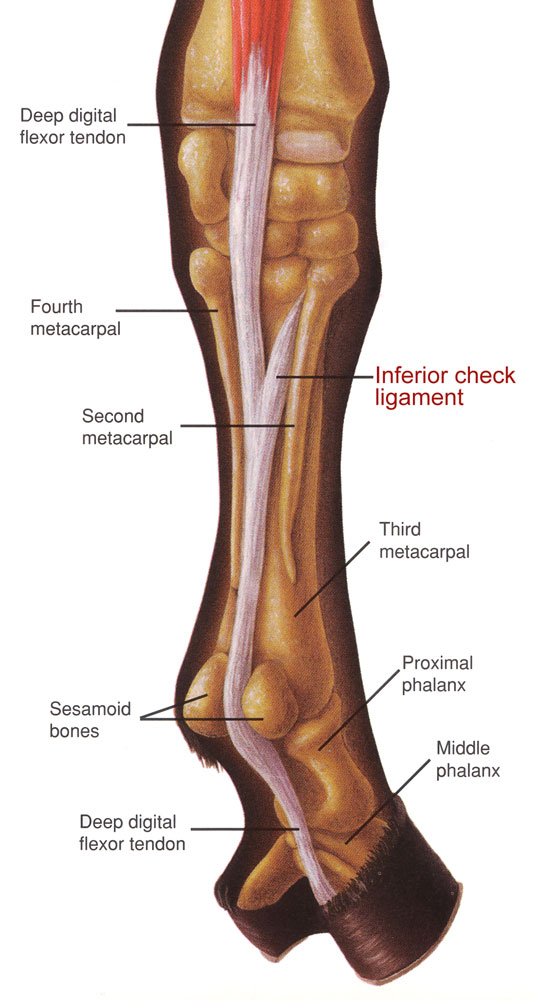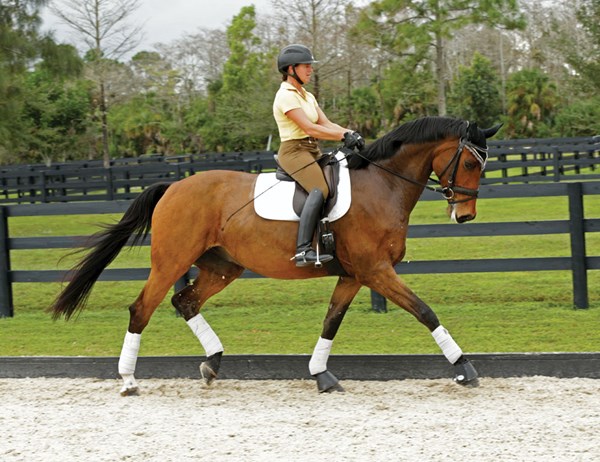COVID-19. A postponed Olympics. Show cancellations. Lockdowns. The Equine Herpes Virus outbreak. These alarming elements have combined for more than a year, resulting in a problematic preamble to the rescheduled 2020 Tokyo Olympics.
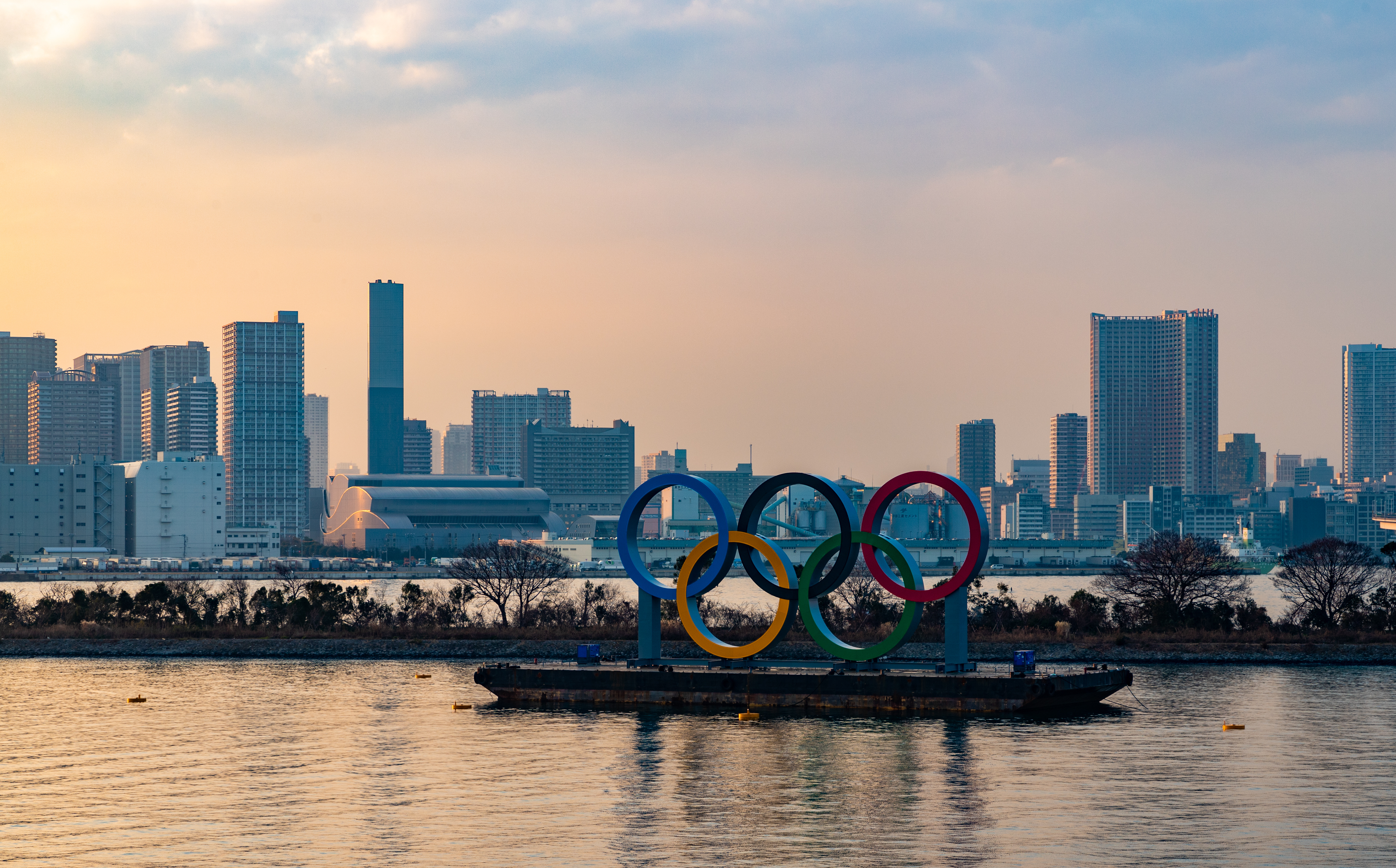
Despite issues with controlling the virus in Japan, where several hundred thousand people petitioned in May to cancel the Games, it seems likely the Olympics, scheduled for July 23–August 8, will go on this summer—barring another calamity of biblical proportions.
That means riders, team staffers, officials and organizers have had to find an unprecedented way forward. It hasn’t been easy.
“This is the most challenging Games I’ve ever been involved in,” said Will Connell, the U.S. Equestrian Federation’s director of sport.
“From the performance side, it’s trying to ensure the right competition schedule for the buildup. The U.S. has a big advantage in some disciplines [for which competition cancellations were common around the world] because we’ve been competing since last year and competed all spring, so that’s been good for us. But the COVID protocols that Tokyo is putting in place are very challenging.
“Normally, we’re at this stage of planning a year-and-a-half out,” he said just two months before the Games, when more changes became necessary.
The Logistics Challenge
While the show jumpers were always scheduled to fly out of Europe after competing there in the run-up to the Games, the eventing, dressage and para-dressage horses were going to quarantine at the U.S. Equestrian Team Foundation headquarters in Gladstone, New Jersey, and fly out from the U.S.
Now all of the American horses will have to fly from Liège, Belgium, from their pre-quarantine base near Aachen in Germany about 45 miles away. There simply wasn’t a flight pattern out of North America that fully protected the welfare of the horses, according to Connell, explaining there were also restrictions about who could go on the flights.
And that was just the beginning of the complications.
“The protocols in place in Tokyo around testing, transportation and basically just living are challenging for a sport like ours,” he explained. While team members will live in the athletes’ village and grooms at the venue, there are also staff members who cannot be housed in either location and will have to stay in hotels.
The idea is to keep people from overseas away from the Japanese population, which means those associated with teams will be confined to their housing and competition venues, with no chance to sightsee, socialize or go to restaurants in the city.
These Games also will be more expensive for the U.S. campaign than originally planned, with extra costs for everything from extended COVID testing to having all the horses in Germany pre-export and paying for catering food rather than going to restaurants as well as the need for private transport since public transport is off-limits for athletes and their support team. Connell noted that with the unanticipated outlays, USEF is “very lucky” to have the financial backing of the U.S Equestrian Team Foundation and the U.S. Olympic and Paralympic Committee.
Connell knows that whatever comes up, a difficult situation will be handled by those representing the U.S. “The athletes and team staff are all professionals. They will adapt and overcome,” he maintained.
As dressage technical advisor Debbie McDonald put it, “Nobody said it was going to be fun. We’re going to make it the best we possibly can, and we’re going in with an attitude that we’re there to do a job.”
Dressage: Strong Contenders
Adrienne Lyle, top-ranked with Salvino in the U.S. Olympic dressage standings before the discipline’s June “mandatory outing,” said the USEF’s support makes it possible to get through these difficult times.
“I’d like to thank our federation,” said Lyle, who became number 14 in the world standings in May and was also sixth-ranked nationally with Harmony’s Duval. “Without them, it would be impossible to compete.”
Everyone has had their personal issues to deal with in addition to big-picture Olympic concerns. Lyle, for instance, had to postpone her September 2020 wedding to veterinarian David da Silva until this September. As a result, it’s likely her honeymoon will be at Aachen (which was moved from the end of June/beginning of July to September because of COVID) as she works with students competing there.
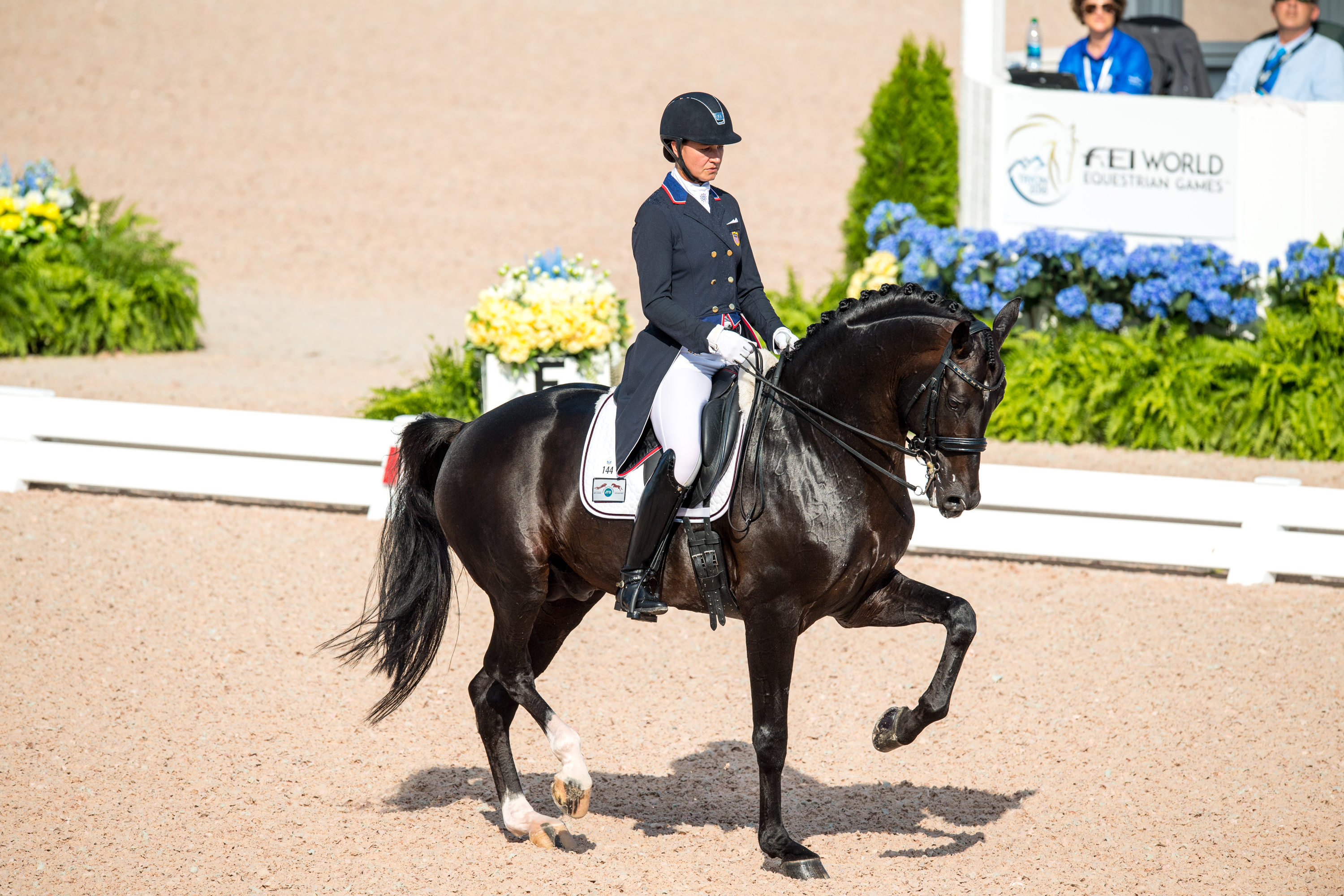
A trip to Europe for U.S. Olympic dressage hopefuls was cancelled in March, with their preparation instead focusing on the Adequan Global Dressage Festival in Wellington, Florida, and then an April four-star competition in Tryon, North Carolina, before the June mandatory outing in Wellington, after which the team was to be named. The outing was scheduled under the lights at the Palm Beach International Equestrian Center, home of the Winter Equestrian Festival, rather than at Global a half-mile away, to give the horses experience in a new venue. The Florida heat and humidity should approximate what the team will encounter in Japan, which is sweltering in the summer, although horses will be staying there in air-conditioned stables and training in a climate-controlled indoor arena. The dressage competition runs from July 24–July 28.
The uncertainty over whether the Olympics will happen makes it easy to play mind games, but as McDonald noted, “you can’t think forward if you’re just thinking that. We are so fortunate in Florida to have as many shows as we did this year. I’m super excited because if everybody puts in a super ride, you can’t count the U.S. out [of the medals]. If we can get horses at 77 to 80 percent, we’re in the mix.”
Foreign teams had less competition opportunity during COVID and the equine herpes virus (EHV-1) outbreak, which means some are a bit of a mystery, but Germany remains a powerhouse with Isabell Werth leading the way. The Dutch and Danes are also in medal contention. Great Britain lost one top horse to an injury, yet with Charlotte Dujardin and two high-scoring mounts in her string, they also have to be considered a medal-contender nation.
“Everybody has a strong horse,” said McDonald, “but they also have some that aren’t scoring as high.” There are five or six riders on the U.S. short list of 12 (with 15 horses) who look to be in real contention for the three-member team and alternate slot, though Lyle and the number two-ranked rider, Steffen Peters with Suppenkasper, would seem to have a lock on their berths. The selectors picking the team will choose six horses to go into quarantine after the mandatory outing, but only four will go on to Tokyo. Also in the running are number three in the ranking, Sabine Schut-Kery (Sanceo), followed by Olivia Lagoy-Weltz (Lonoir) and Nick Wagman (Don John).
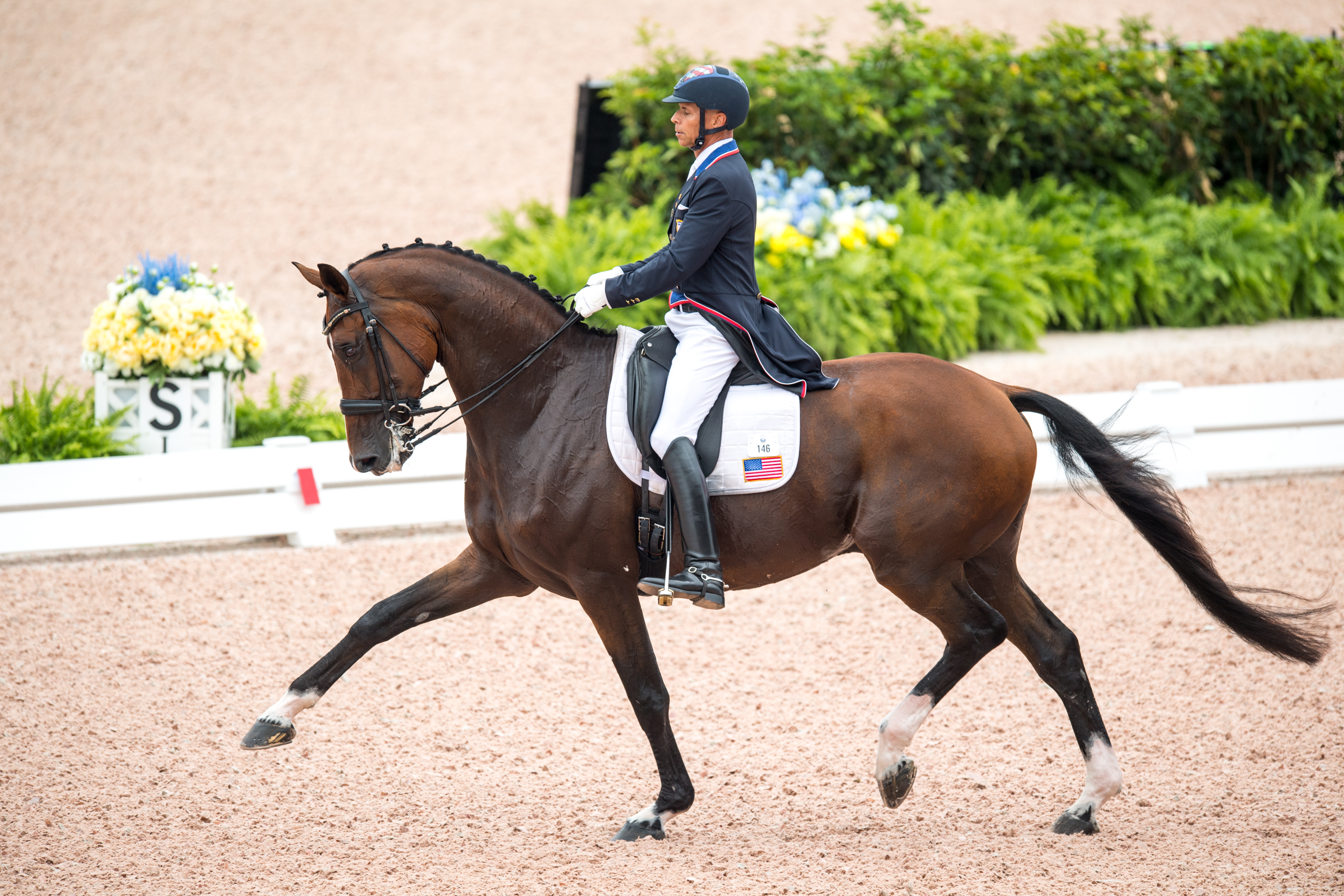
McDonald noted the choice of alternate is particularly important because “it’s a long, long trip and it’s going to take a lot out of them and they really only have five days to recover when they get to Tokyo, which is very different than we had in Hong Kong [the 2008 Olympics]. We were there almost two weeks ahead.”
While it would have been “ideal” to compete in Europe against the best teams, “it was just not possible,” said Debbie, but noted some of the judges in Tokyo have judged in Wellington and have seen the capability of the U.S. combinations.
“If anything, I think we have an edge because we had great five-star judges at almost every show. … It’s the strongest we’ve ever had that I can even remember,” she said, citing horses with scores in the mid-70s and above.
“It’s never been this tight a race at this level. I feel like we’re definitely getting better horses, the riders are riding better, there’s more experience. It’s starting to show.”
Those who don’t make the team will be waiting in the wings to strengthen the competitive program going forward.
Eventing: “It’s Worth It”
For the eventers, getting ready has gone “according to plan,” said the discipline’s performance director, Erik Duvander, noting preparation was always built on doing competitions in America.
“If we had planned to go abroad, it would have been different,” he pointed out, but as it was, only one or two riders originally might have wanted to go to Great Britain’s five-star Badminton Horse Trials before it was cancelled.
Key to the American lead-up was the Land Rover Kentucky Three-Day Event five-star, which was called off and then went ahead after a grassroots campaign raised enough money for it to be held without spectators. A Kentucky outing was vital because the cross-country was designed by Derek di Grazia, who is also laying out the Olympic cross-country route.
“Derek built a very, very good track this year, as he always does, but this one was particularly good,” Duvander said. “I think we learned a lot from riding around there.”
The team of three were headed to Great Meadow in Virginia with other alternates for a mandatory outing that will be a final preparation before flying to Tokyo. The eventing competition runs from July 30-August 2.
Duvander, who took his post in 2017, finally has had time to let his program work.
“When we went to the World Games last time [2018], we had a group of very young horses, very inexperienced horses. They were in the making but not ready,” said Duvander, who had been on the job for less than a year at that point. The team finished eighth of 16 squads.
Now, however, it’s a different story. Duvander said horses who competed at WEG, like Phillip Dutton’s Z, named to the eventing team in May, now “seem much more ready.”
Z was the top U.S. finisher at the WEG in 13th place. The Zangersheide gelding was eighth at Kentucky, but in regard to his 5.2 cross-country time penalties, Dutton said he had a bit of a problem setting his watch as he left the start box because of a glitch there.
“He’s going in great form,” he said, noting he doesn’t worry about all the drama around whether the Games will go on. “Those decisions are above my pay grade. I just try to assume it’s going to happen and plan on it and we’ll see what happens. It’s nearly day-to-day and week-to-week on how it’s all going to work. I’m just trying to prepare my horse each day how it should be done and see what happens.”

As he noted, “It’s not that easy for everybody to plan, but considering everything that’s going on in the world, our sacrifices are not that big.”
With all the difficulties surrounding the Tokyo Games, you might think some of the riders would choose to opt out. But these athletes are used to overcoming whatever is in their way, so they’re not going to skip a chance to ride in the Olympics, no matter what they have to do to get there.
“Absolutely it’s worth it,” Dutton said. “From my point of view, the ultimate reward is representing your country and then, if you’re fortunate enough to bring home a medal for it definitely [as he did with individual bronze at Rio].”
Also named to the eventing team were Boyd Martin and Luke 140, his winner at the final team selection trial, the Jersey Fresh International CCI4*-L. Martin obviously is considered essential to the team; he was also named with two direct reserve horses (if Luke can’t run, one of these horses would replace him to keep Martin in the mix.) They are Tsetserleg TSF, his Pan Am Games double gold medal mount who fell at the Land Rover Kentucky CCI5*-L, and On Cue, fourth at Land Rover Kentucky in her five-star debut.
The third team member is the U.S. Eventing Association’s 2020 Rider of the Year, Liz Halliday-Sharp with Deniro Z. Doug Payne is the traveling reserve with Vandiver. The reserve combination can play an important role with a three-member team, because a substitution is permitted under certain circumstances. Tamie Smith and Mai Baum are the first alternates.
With a paucity of three-day events around the world since the beginning of 2020, it’s hard to assess form for team placings, but Britain is always a contender, especially since its nominated entries include world number one Oliver Townend with his Land Rover Kentucky winner, Ballaghmor Class, and world champion Ros Canter with Allstar B. The New Zealanders have a strong pair in the husband/wife team of Jonelle and Tim Price, ranked number two in the world, and there are the Germans and French to be considered.
Show Jumping: Competing Against the Best
The show jumpers are the only U.S. team campaigning in Europe pre-Olympics. They headed for Rome at the end of May and also will do Nations Cups in Poland and the Netherlands.
“Florida was a pretty good lead-in,” said show jumping coach Robert Ridland about the Winter Equestrian Festival. “While most of the rest of the world was closed down, Florida was very competitive and good as an aid to selection. I don’t really know that we’ve had any major changes from what we’ve normally done in a championship year.”
In Europe, “everybody [on the U.S. list] gets two five-star [shows], they get the pressure of competing against the world’s best on their home turf. That’s probably the main difference between what we’re about to do and what we just finished doing. It’s not like the jumps are going to be any bigger and wider; they were big and wide enough in Florida. There’s a home field comfort zone of being in a facility so many weeks in a row. It’s a totally different situation going head-to-head and particularly when you get into the Nations Cup situation.”
As Ridland noted, Olympics are always high-pressure, and this time it will be more so since three-member teams don’t have the luxury of a drop score, though there can be a substitution in limited circumstances before the team final. Show jumpers compete from August 3–7.
“Riders who are able to take that kind of pressure, that’s going to be a determinant. From the horse point of view and rider point of view, fitness and the ability to do five rounds of the highest-level competition within a week in 92-degree weather and 100 percent humidity” are also crucial.
Ridland recalled when he was in Tokyo in 2019 on the same week the Games will be held, he found that “When you walk out of whatever building you’re in in Tokyo, you’re drenched in sweat in two minutes.” Although jumping will be held at night, when the sun isn’t beating down, “the temperature and humidity don’t change.”
The biggest difference in the format between Tokyo and the Olympics since the 1980s is that in Japan, the team competition will follow the individual. The change was made to highlight the team competition as the finale, to show its importance, according to Ridland.
In his view, however, “the individual has always been the icing on the cake,” and he prefers having the individual test last.
“We want to make sure we have the best shot we possibly can in the team competition, but multiple rounds already will have been done in the individual,” he pointed out. Though a horse or rider/horse substitution is allowed, it takes some doing to get that accomplished.
“It is what it is and we’ll have to deal with it,” Ridland said, noting that without a drop score “you can’t make up for a mistake in any given round.”
“You’ve got to play the game. That’s what sports are about. That’s part of the fun, the excitement, the pressure and to see how these riders are going to react under extreme pressure.”
While the Germans, Swiss, British, Dutch and French may all be medal contenders, Ridland believes the three-on-a-team design, with 20 squads competing and no discard score format makes it hard to handicap how they will do over courses designed by Santiago Varela of Spain, particularly with a paucity of Nations Cups this year.
“Making it to the second round in the team competition is not going to be an easy situation,” he contends, saying 12 teams could be in range for a medal. “I don’t think there are any overwhelming favorites going in.”
There are 10 riders and 24 horses on the U.S. shortlist, with the most prominent names being Kent Farrington, Beezie Madden, McLain Ward (all teammates on the Rio silver medal squad), Laura Kraut and Jessica Springsteen.
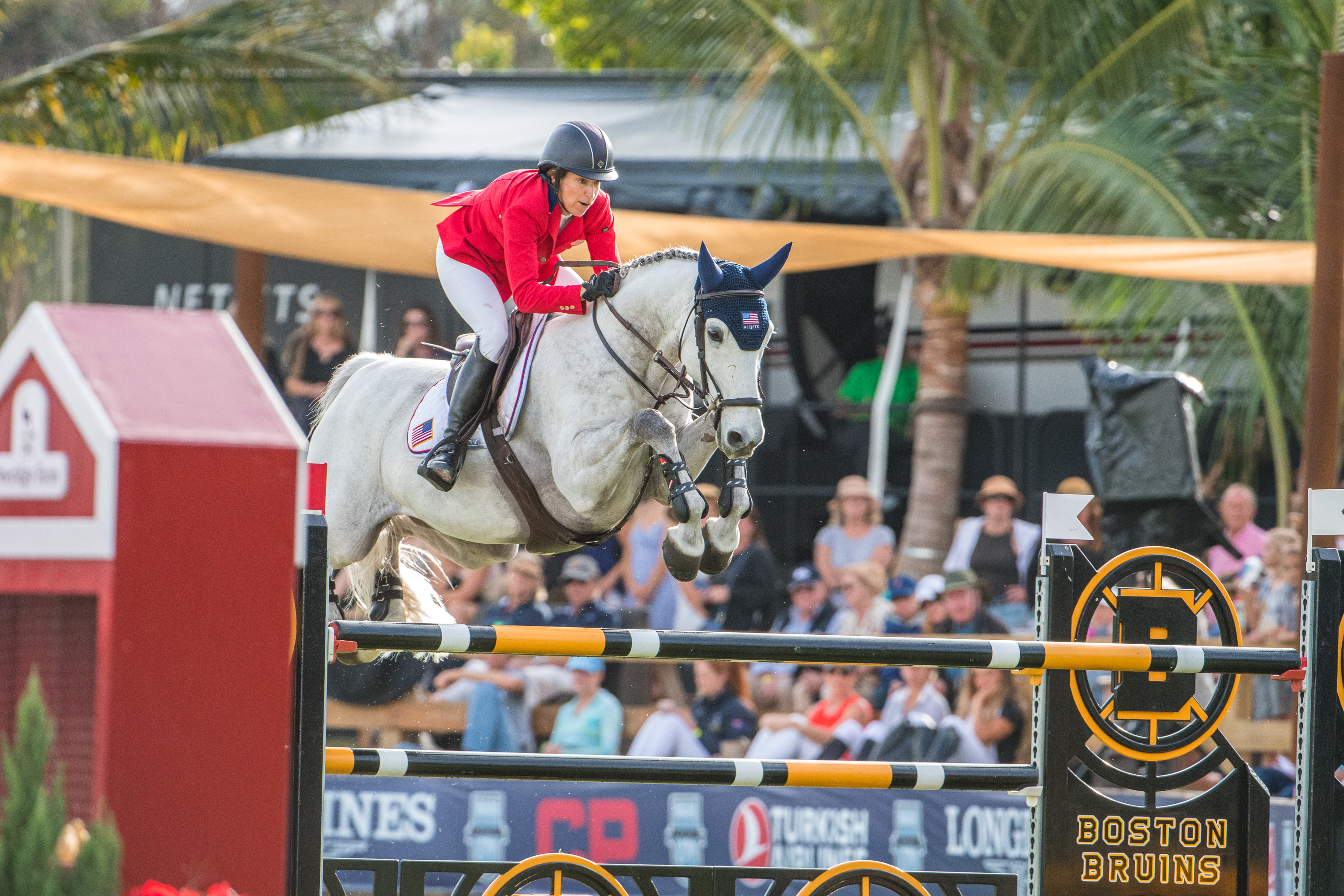
With the uncertain show schedule early in the year and the cancellation of the Devon Horse Show, Ward—who has three possible Olympic mounts—noted, “it gets difficult to keep aiming different candidates toward the championships,” adding his team had to “keep reworking the calendar every week.”
Kraut had a bad break, literally, early during the Winter Equestrian Festival, when she cracked her collarbone in a fall and had to sit out for a month. “The broken collarbone affected my preparation more than the uncertainty,” she said.
Things changed dramatically for her April 9, the last day horses could be purchased to be eligible to compete for the U.S. in Tokyo, when her sponsor, St. Bride’s Farm, bought Baloutinue.
“We got him at the eleventh hour,” she said. And they clicked right away—the 11-year-old Hanoverian by Balou du Rouet won the first major competition they entered on April 18 in Wellington.
With two other horses available, Confu and Goldwin, Kraut was well-situated. Even so, she said, “For myself and everyone that I know, we’re just sort of going along doing what we do and thinking we’re going to have that opportunity but we don’t really know. I’m riding thinking, ‘Is it going to happen?’”
Whatever happens, U.S. riders will be ready.
This article originally appeared in the Summer 2021 issue of Practical Horseman.


